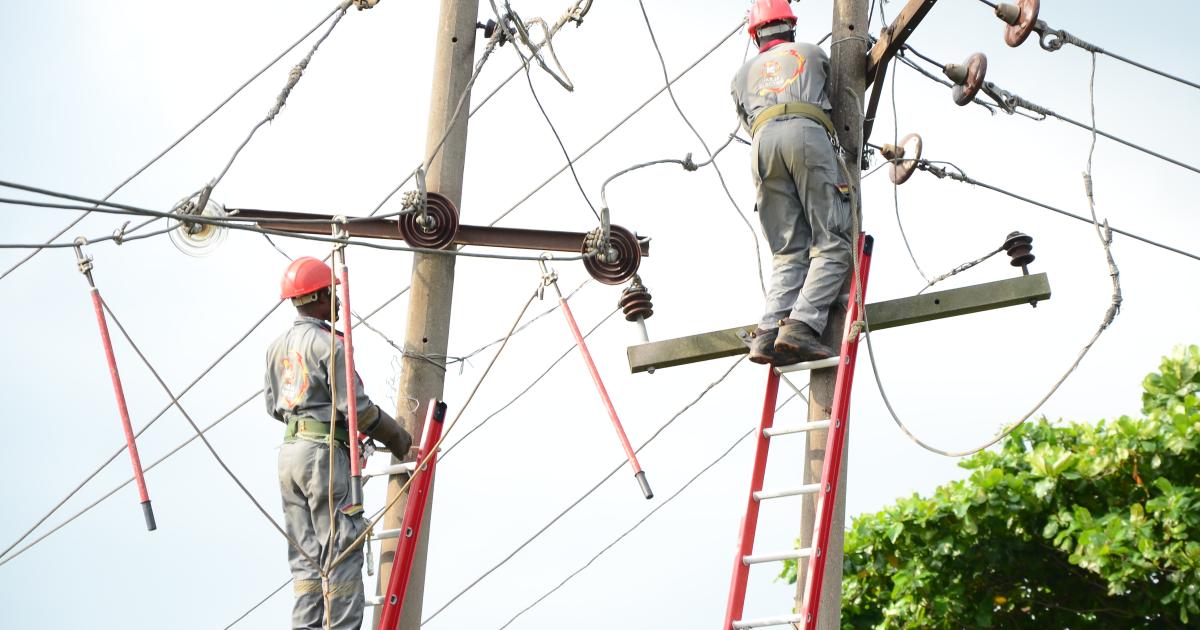FOLLOWING the vandalism and theft of power infrastructure, Federal Government has mobilized the National Security Agency (NSA) to arrest and bring to book any person involved in such acts.

Minister of Power, Adebayo Adelabu who made this known in a statement, further stated that the step was necessary to ensure an increased supply of electricity.
“Tackling power theft and vandalism is paramount. We’ve informed the NSA of recorded cases, emphasising the need for joint efforts to protect our assets. This national responsibility requires collective action to eliminate setbacks” he said.
Adelabu also revealed that the Federal Government is bent on closing the meter gap which has been on slow motion for long.
According to him, the government would leverage on the World Bank programme to ensure that the distribution of electricity meters gains momentum.
“Closing the meter gap is imperative, and initiatives like the World Bank programmes and the Presidential Metering Initiatives will gain momentum. The ministry will intervene in distribution infrastructure, supplying transformers to communities without burdening citizens financially” he said.
On rural electrification, the minister noted that the government would focus on solar-powered mini/micro grids and streetlights adding that the government would reactivate Siemens project to strengthen the national grid.
“Rural electrification is a priority, focusing on solar-powered mini/micro grids and streetlights. Collaborating closely with the distribution companies (DisCos) and State Electricity Boards, our efforts will align with local needs.
“To improve transmission infrastructure, we’ve reactivated the Presidential Power Initiative (Siemens Project) to strengthen the national grid. The Eastern and Western super grid projects will also be implemented to increase electricity supply to demand centres.
“The Transmission Company of Nigeria (TCN) will be reconstituted in the short term, separating transmission services from system/market operations. In the medium to long-term, regional grids will be established for effective management.
“Generating at installed capacity is a goal for government-owned plants, while private companies are encouraged to invest further. Off-grid/distributed generation, utilising renewables, will be a focal point” he said.
However, the minister regretted that liquidity is a big challenge in achieving the projects.
To this effect, he announced that the government is reviewing the cost-reflective tariff while the subsidy on the sector continues.
“The lack of liquidity remains a significant challenge in the electricity market. We’re reviewing the implementation process of a cost-reflective tariff, while ensuring continued government’s subsidy for vulnerable members of society.
“As we embark on this transformative journey to bolster Nigeria’s electricity sector, we appreciate the collective effort of all stakeholders. Our commitment is unwavering, and we’re dedicated to overcoming challenges to ensure a reliable and sustainable power supply. The path ahead requires collaboration, and we urge citizens, DisCos, State Electricity Boards, and private entities to join hands in achieving our shared goal. Together, we can create a resilient power infrastructure that propels economic growth and improves the lives of all Nigerians” the minister, stated. ENDS
The steps outlined in the Electricity Turnaround Agenda are strategic, and with your support, we’re confident in our ability to make substantial progress. Let’s embrace this opportunity to power a brighter, more electrified future for our nation,” he said.











